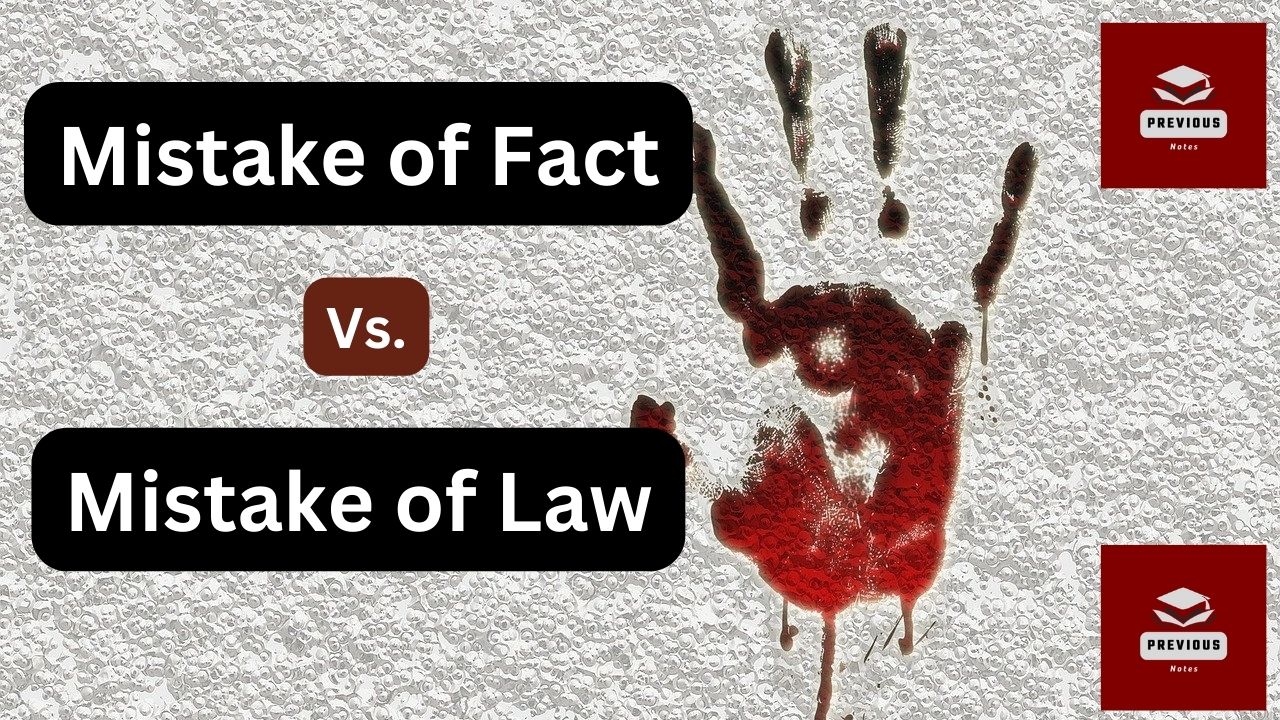Section 76 of IPC (Mistake of Fact & Mistake of Law)
Section 76 of the Indian Penal Code (IPC) addresses the concept of mistakes in the context of criminal liability, specifically focusing on “mistake of fact” and “mistake of law”.
Section 76 of the Indian Penal Code (IPC)
Text of Section 76:
“Act done by a person bound, or by mistake of fact believing himself bound, by law.—Nothing is an offence which is done by a person who is, or who by reason of a mistake of fact and not by reason of a mistake of law in good faith, believes himself to be bound by law to do it.”
This section provides that if a person performs an act because they believe, due to a mistake of fact, that they are legally bound to do so, their act is not considered an offense, provided the belief is held in good faith and is not due to a mistake of law.
Analysis
Act Done by a Person Bound by Law:
This clause refers to acts committed by individuals who are legally required to perform such acts. If a person acts because the law obligates them to do so, their action is not considered an offense under the IPC.
Mistake of Fact:
- The key part of Section 76 is the protection it offers to individuals acting under a “mistake of fact”.
- If a person, due to a mistake of fact, genuinely believes they are bound by law to perform a particular act, they are not held criminally liable for that act.
- The mistake must be factual, not legal, and the person must act in good faith.
Good Faith:
Good faith implies honesty and the absence of malintent. The individual must have a sincere belief in the fact that leads them to think they are bound by law.
Example Scenarios
Mistake of Fact:
A police officer, while on duty, arrests an individual thinking they are a wanted criminal based on the information provided, which later turns out to be incorrect. The officer acted under a mistake of fact (believing the individual was the criminal) and in good faith (following their duty), thus they are protected under Section 76.
Mistake of Law
If the same officer arrests someone under the belief that they have the legal authority to do so, but actually they lack such authority due to a misunderstanding of the law, this would be a mistake of law. In this case, Section 76 does not provide protection because the mistake is legal, not factual.
Key Points:
Protection Under Section 76:
- The protection is only granted for mistakes of fact, not mistakes of law.
- The belief must be in good faith, implying the person genuinely thought they were legally bound due to a factual error.
Application:
- This section is often applied to situations involving law enforcement and public officials who must make decisions based on the facts available to them at the time.
Conclusion:
Section 76 of the IPC provides a significant safeguard for individuals acting under a mistake of fact, ensuring that they are not unjustly penalized for actions taken in good faith under the belief that they were legally required to act. However, this protection does not extend to mistakes of law, reinforcing the principle that individuals are expected to be aware of and understand the law.
Related Articles:
You May Also Like:
Euthanasia in India, Right to die with Dignity
Right to Privacy Case Law Mr. X vs. Hospital Z
Federal Constitution Definition and key points
University of Madras vs. Shantabai,1954: Article 12 Case Law
Article 20 Fundamental Right with Case Laws
Article 19 Fundamental Right of Indian Constitution with 10 Case Laws
Article 358, 359 Fundamental rights during emergency
Parliamentary Privileges and Fundamental Rights with Case Laws
Article 14 Fundamental Right with Case Laws
Article 15 Fundamental Right with Case Laws
Article 12 Fundamental Right with Case Laws
DOMESTIC VIOLENCE AS TORT | APPLICATION OF TORT LAW
Crimes without Mens Rea? Statute without Mens Rea.
Definition of crime by various jurists, Criminology
Methods of Studying Criminology
All about Capital Punishment with Case Laws
IMPOSSIBLE ATTEMPT | ATTEMPT VS IMPOSSIBLE ATTEMPT
Difference between Preparation and Attempt
Tests to Determine Attempt and preparation | With Case Laws
Specific Principles of Criminal Law | LLM Previous Year Paper 2024 | CCSU
Specific Torts | LLM 4th Semester Previous Year Paper 2024 | CCSU
History and Basic Principles of Criminal Law | Previous Paper 2023
LLM Previous Year Paper 2023 | PRIVILEGED CLASS DEVIANCE
PENOLOGY PREVIOUS YEAR PAPER | LLM | CCSU
LLB Previous Year Paper 2023 | Constitutional Law II | CCSU
Forms of Judicial Process: Adversarial & Inquisitorial
DOMESTIC VIOLENCE AS TORT | APPLICATION OF TORT LAW

Leave a Reply Cancel reply